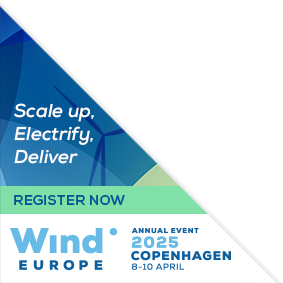Posters
Siblings:
ProceedingsProgrammeSpeakersPostersContent PartnersPowering the FutureMarkets TheatreResearch & Innovation in actionStudent programmePresenters dashboardCome meet the poster presenters to ask them questions and discuss their work
We would like to invite you to come and see the posters at our upcoming conference. The posters will showcase a diverse range of research topics, and will give delegates an opportunity to engage with the authors and learn more about their work. Whether you are a seasoned researcher or simply curious about the latest developments in your field, we believe that the posters will offer something of interest to everyone. So please join us at the conference and take advantage of this opportunity to learn and engage with your peers in the academic community. We look forward to seeing you there!

PO164: Energy yield assessments considering climate change
Simone Pfau, Scientist Wind Field Modeling, GEO-NET Umweltconsulting GmbH
Abstract
The question of how the climate change will affect the energy yield of wind farms during their operating period was increasingly raised at various conferences and industry meetings. Additionally, the November 2022 BWE standard for a well-managed wind farm with direct financial citizen participation from the German Wind Energy Association calls for the climate change to be adequately considered when preparing wind and yield assessments. Therefore, the impacts of climate change on the yield-relevant quantities are studied and thus the future yield of wind farms is estimated using various climate scenarios. The estimation is based on a coupling of an ensemble of regional climate projections from the CORDEX initiative for various RCP scenarios with the CFD model FITNAH-3D. Within the CORDEX initiative, regional climate models are driven by global climate models, which provide forecasts for future climate changes. The RCP scenarios are based on the evolution of the concentration of climate-relevant greenhouse gases in the atmosphere and the resulting, additional radiative forcing by the end of the 21st century relative to pre-industrial levels in 1850. The research is based on determining site-specific changes between the CORDEX-data from a reference and a future period assuming a constant bias for different RCP scenarios and to apply this change to current high-altitude wind statistics, temperature, pressure, and relative humidity, respectively, as these quantities are yield-relevant and used for the calculation of the energy yields. It was found that the use of the change signal of the CORDEX data between two periods does allow conclusions to be made regarding the effects of climate change, but climate variability as a possible cause of the analysis results cannot be ignored.










